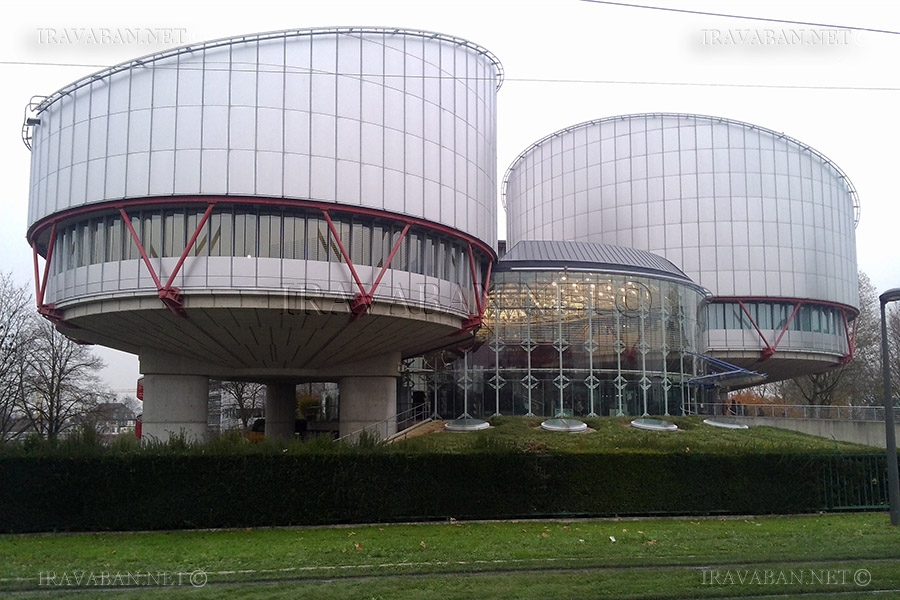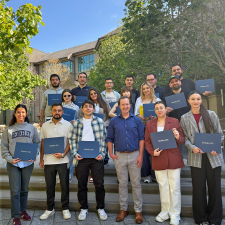In the “Islam Aliyev v. Armenia” case, the Azerbaijani lost in the European Court of Human Rights. Iravaban.net reports that the case is related to the events that took place during the four-day war unleashed by Azerbaijan in April 2016.
This decision of the Court enters into force on 5 January, 2024.
Thus, 86-year-old Islam Aliyev, a citizen of Azerbaijan, is from Gapanli village of Tartar region. He appealed to the European Court of Human Rights and reported that on 2 April 2016, at around 3 a.m., the Armenian armed forces began shelling Azerbaijani towns and villages located along the line of contact between Azerbaijan and the “NKR”, using artillery and rocket launchers. Later that day, the village of Gapanli, situated next to the line of contact, came under shellfire from the Seysulan village on the “NKR” side.
The applicant informed that at around midnight on 4 April 2016 some shells hit the area surrounding the applicant’s house, situated 400-500 metres away from the line of contact. Fragments broke windows and damaged doors and roof tiles. The applicant and all members of his family were at home but escaped injury. According to the protocol of the examination, the shelling had destroyed 48 sq. m of window glass and 250 sq. m of asbestos roof tiles as well as several doors.
The applicant complains that the actions of the attacking forces had put his life at risk and caused him anguish and distress, his right to respect for his family life and home had been infringed as well. He also complains that his house had been damaged during the shelling, thereby depriving him of the peaceful enjoyment of his property. He cited Articles 2 (Right to Life), 3 (Prohibition of Torture) and 8 (Right to respect for private and family life) of the Convention and Article 1 (Protection of Property) of Protocol No. 1 of the Convention.
Aliyev claimed that there are no effective remedies of legal protection in Armenia for his complaints, and he also claimed that “military attacks against Azerbaijanis were carried out on the basis of their ethnic and national origin”.
Yeghishe Kirakosyan, RA Representative for International Legal Issues, told the Court that after threatening to use military force for a long time, on the night of 1-2 April, 2016, Azerbaijan launched a large-scale attack along the contact line.
The forces of Nagorno-Karabakh, as well as civilian infrastructures and settlements, have become targets of heavy shelling by artillery, tanks, armored vehicles, grenade launchers and the air force. Several towns and villages came under heavy shelling, and officials evacuated about 5,000 residents. Almost two dozen civilians were killed or injured. Both the NKR forces and Azerbaijan lost a large number of troops and military equipment.
The Government of the Republic of Armenia noted that the applicant did not exhaust the domestic remedies of legal protection, as he did not try to apply to the authorities of the Republic of Armenia or the Republic of Artsakh to exercise his right according to the domestic legislation. It was noted that any practical obstacle in this regard is a consequence of the behavior and policy of the government of the Republic of Azerbaijan and its related bodies. “… The Government of Armenia has claimed that the complaint is inadmissible on the basis of obvious groundlessness. They noted, in particular, that no medical document or other evidentiary evidence was presented, which would show that the applicant’s life was in danger. There is not even any indication that the applicant or his family was at home or in the village during the relevant period. Moreover, he did not present a certificate of ownership of the allegedly damaged house.”
The Government of the Republic of Azerbaijan fully agreed with the position of the applicant regarding the admissibility of the complaint and the circumstances of the case.
However, the ECtHR recognized the Azerbaijani’s complaint inadmissible.
The Court noted that “the active phase of hostilities under examination in the present case was very different, as it concerned bombing and artillery shelling by the armed forces on both sides of the conflict, seeking to put the enemy force hors de combat and capture territory. The factual elements of the case do not reveal any instance of control over or proximity to the individuals in question. In these circumstances, there cannot be said to have been “State agent authority and control” over individuals in regard to the events complained of by the applicant.”
The Court finds that the military operations and their consequences at issue in the present case did not fall within the jurisdiction of Armenia for the purposes of Article 1 of the Convention, either as “effective control” over territory or as “State agent authority and control” over individuals.
The ECtHR noted that all the applicant’s complaints must be declared inadmissible.















